US, Israel scramble to block UN General Assembly resolution on Quds
Prior to an emergency UN General Assembly session on Jerusalem al-Quds, the United States and Israel have resorted to pressure tactics and lobbying efforts in an attempt to prevent the world body from adopting a resolution critical of Washington’s policy shift on the occupied city.
Arab and Muslim states have requested that the 193-nation assembly hold an emergency special meeting on US President Donald Trump’s decision to recognize Jerusalem al-Quds as Israel’s “capital,” days after Washington used its veto power to block an Egypt-drafted resolution against the move at the UN Security Council.
The vetoed resolution, which had been approved by the other 14 members of the council, stipulated that “any decisions and actions which purport to have altered, the character, status or demographic composition of the Holy City of Jerusalem [al-Quds] have no legal effect, are null and void and must be rescinded in compliance with relevant resolutions of the Security Council.”
During the Thursday session, the General Assembly member states will reportedly vote on a non-binding resolution that mirrors the vetoed measure.
Palestinian Ambassador to the UN Riyad Mansour said he expected “overwhelming support” for the General Assembly’s Thursday vote, stressing that Jerusalem al-Quds is an issue “to be resolved through negotiations” between Israelis and Palestinians.
“The General Assembly will say, without the fear of the veto, that the international community is refusing to accept the unilateral position of the United States,” he added.
'Trump watching,’ Haley threatens
On Tuesday, US Ambassador to the UN Nikki Haley, in a letter to dozens of the world body’s member states, warned that Washington would remember those who voted for the measures.
“The president will be watching this vote carefully and has requested I report back on those countries who voted against us. We will take note of each and every vote on this issue,” read the letter seen by Reuters.
At the UN we're always asked to do more & give more. So, when we make a decision, at the will of the American ppl, abt where to locate OUR embassy, we don't expect those we've helped to target us. On Thurs there'll be a vote criticizing our choice. The US will be taking names. pic.twitter.com/ZsusB8Hqt4
— Nikki Haley (@nikkihaley) December 19, 2017
She also echoed the warning in a Twitter post, saying, the US will be “taking names” of the countries that support the resolution.
Israel steps up lobbying
Additionally, the Israeli ministry for foreign affairs has instructed its embassies around the world to lobby against the upcoming General Assembly resolution.
It advised Israeli diplomats to encourage their host countries to oppose the document or at least to refrain from voicing public support for it.
On December 6, Trump declared that Washington was recognizing Jerusalem al-Quds as the “capital” of Israel and that he had instructed his administration to begin the process of moving the American embassy from Tel Aviv to the holy city.
The dramatic shift in Washington’s Jerusalem al-Quds policy drew fierce criticism from the international community, including Washington's Western allies, and triggered protests against the US and Israel worldwide.
Israel lays claim to the whole Jerusalem al-Quds, but the international community views the ancient city’s eastern sector as occupied land and the Palestinians consider it their future capital.
UN passes resolution on Palestine cause
In a diplomatic blow to Israel, the UN General Assembly on Tuesday voted 176-7 in favor of a resolution reaffirming the Palestinians’ right to self-determination.
The US, Israel and Canada were among the opponents of the text while four states abstained.
The General Assembly approves a similar text each year.
Mansour said that vote should be seen within the context of international opposition to Trump’s Jerusalem al-Quds decision.
Abbas sends envoys to China, Russia
Reacting to Trump’s contentious move, Palestinian President Mahmoud Abbas has said he would no longer accept the US as a mediator to resolve the decades-long Israeli-Palestinian conflict.

Therefore, he dispatched delegations to China and Russia on Tuesday to find replacement for the US in the so-called Middle East peace process.
“The two delegations will convey a message from President Abbas to Russia and China, the purpose of which is to find a new international sponsor for the peace process, in the framework of the United Nations, in order to replace the American sponsorship,” Wafa news agency quoted senior Palestinian Authority official Ahmad Majdalani as saying.
Abbas is now in Saudi Arabia to discuss the US decision on Jerusalem al-Quds with Saudi King Salman and Crown Prince Mohammed bin Salman, according to the Palestinian ambassador to Saudi Arabia, Bassam al-Agha.
Jan. 15: ‘Axis of Resistance’ operations against Israeli occupation
VIDEO | US fires: Criticism mounts over govt. failure to respond
VIDEO | Fears, hope in Gaza amid intensified ceasefire efforts
VIDEO | Press TV's news headlines
Hamas: Ceasefire agreement result of steadfastness, resistance in Gaza over 15 months
Hamas thanks Iran, Resistance Front following achievement of ceasefire in Gaza
'Capitulation': Israeli officials and media concede Gaza defeat as truce unfolds
'Gaza has won': Social media users react to ceasefire with mix of relief, joy


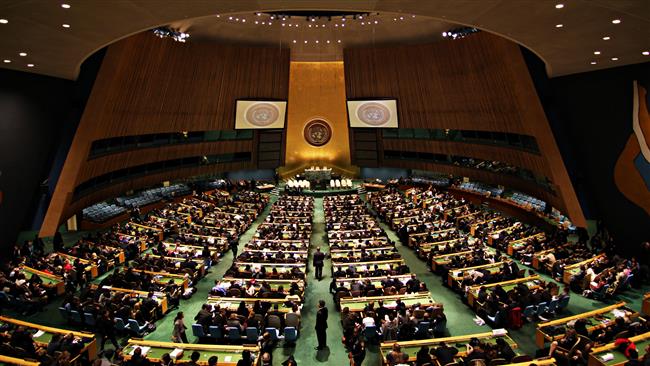



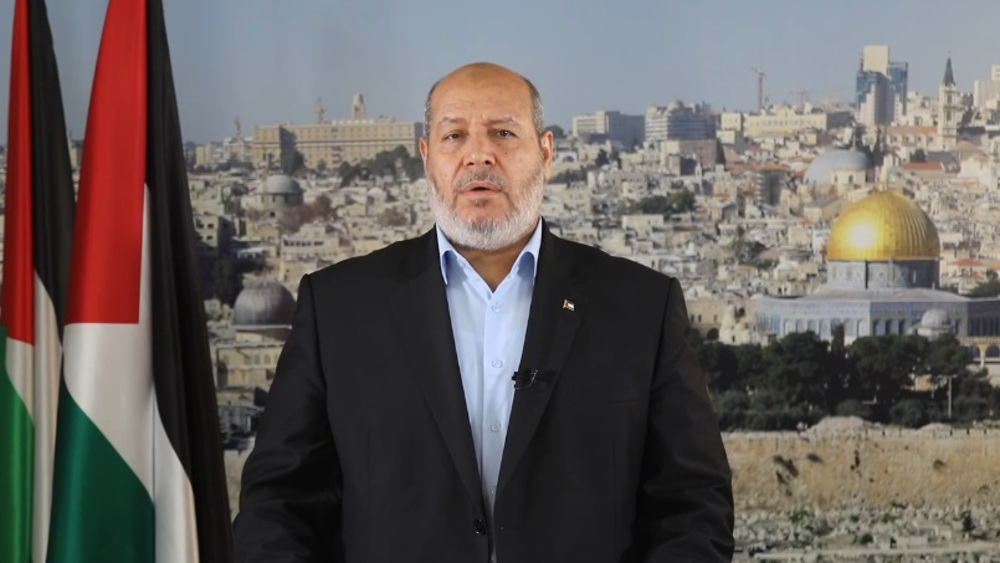



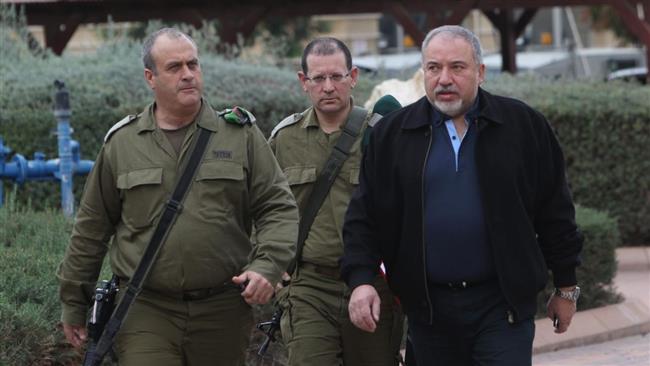
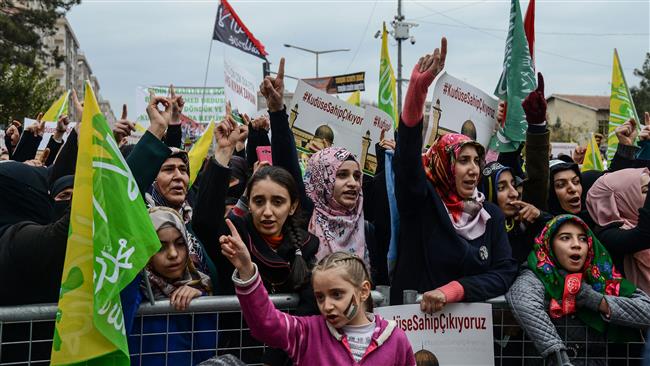
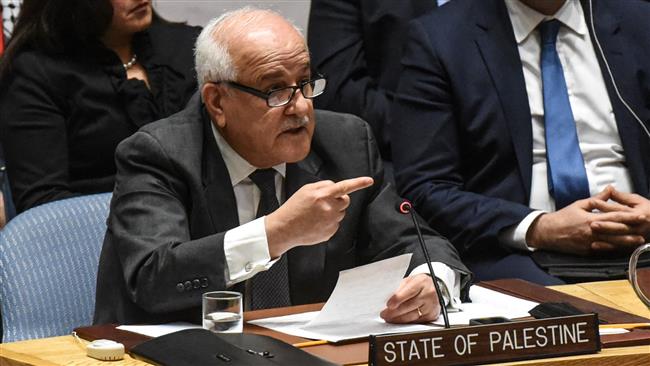
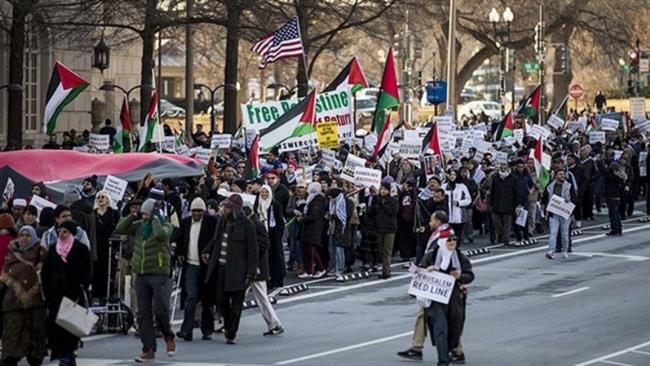
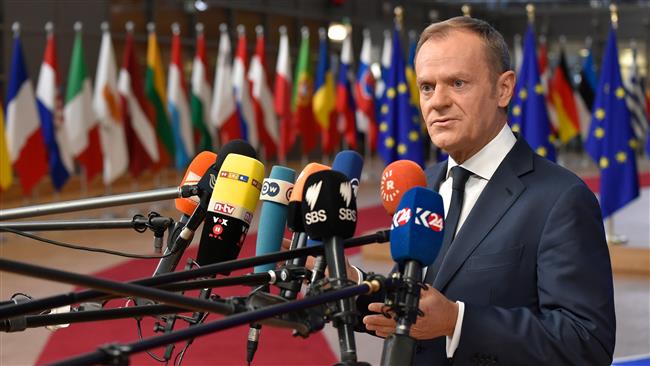

 This makes it easy to access the Press TV website
This makes it easy to access the Press TV website